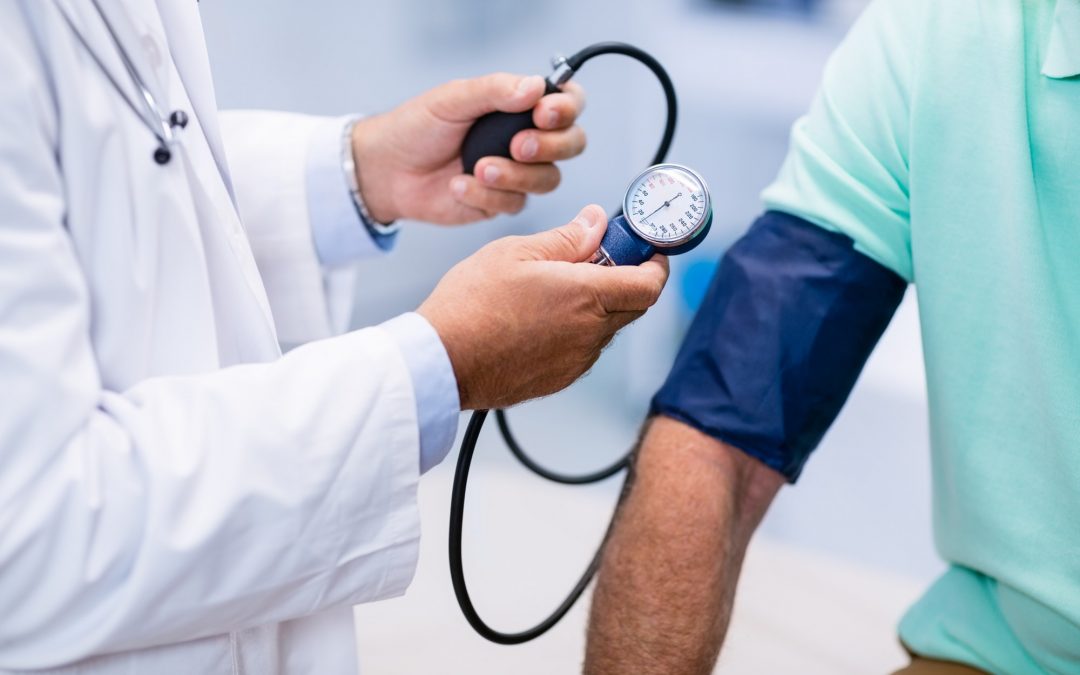Find out how stress and sleep affect your heart health and blood pressure levels.
Stress and lack of sleep are normal in today’s busy, work-obsessed world.
They’re not normal for your body, though. Stress and sleep deprivation can have harmful effects on the whole body, but especially on the heart. One study showed that adults who have stressful jobs and sleep poorly are three times more likely to get heart disease than those who slept well and had less stressful jobs.
But, how? Stress, sleep, and blood pressure are seemingly unrelated.
Here’s how stress, sleep and blood pressure are connected:

Stress is the body’s reaction to a challenge or demand
Stress and hypertension
Stress is your body’s reaction to a challenge or demand. In small doses, stress can actually enhance your performance. It can motivate you to do your best. It can help you meet deadlines, too. Too much stress, however, can have very harmful effects on the body. There are two different types of stress, and each has its own effect on blood pressure: acute stress and chronic stress.
Acute stress
Acute stress is short term stress. Though this type of stress doesn’t cause high blood pressure, it can induce dramatic spikes in blood pressure levels temporarily. If this happens often, these temporary blood pressure spikes can have the same effect as chronic high blood pressure.
Chronic stress
Chronic stress is when the body remains in a heightened state of stress for a prolonged period. It causes the blood pressure to remain at higher levels for a lengthened period of time, which can put a lot of strain on your heart and blood vessels.
Managing Stress
Stress must be handled properly in a timely manner. Dealing with stress can help reverses some of its harmful effects on the body. There are many different ways to cope with stress. Try out a few of these effective stress relievers, and see which ones help you manage stress.
Reacting to stress in unhealthy ways can increase high blood pressure risks. If stress goes unaddressed, many turn to smoking, drugs, alcohol, and poor dietary habits. All three of these behaviors can negatively affect one’s blood pressure.
Keep your stress levels at bay to ensure you’re not making your body work harder than it needs to. Simplify your life, clear your calendar, or go for a run! Your heart will thank you.

A good night’s sleep promotes healthy blood pressure.
Sleep and hypertension
We’ve all been there, awake at 2 AM, counting the hours until work in the morning. A less-than-great night’s sleep isn’t going to kill you. A bad night here and there won’t seriously affect your blood pressure, but if you make those late nights a habit, you might start to see some side effects.
Lack of sleep
People who sleep less than six hours a night are 20% more likely to have hypertension. In one study, researchers saw that individuals who slept poorly or not long enough had higher blood pressure levels the following day when compared to those who slept well. Continued poor sleep multiplies that effect.
Sleep it off
Sleep is the time for the body to rest and recover from the day’s stressors. The body heals itself and has time to fully relax. Adequate sleep gives the nervous system a chance to prepare for another day. Blood pressure returns to its normal levels after rising and falling all day. If you have trouble sleeping, your blood pressure levels might never reach that low point. If that happens continually, your blood pressure will rise.
If you have trouble sleeping, read these 17 ways to get a better night’s sleep.
Recognize the symptoms
Understand the signs and symptoms of hypertension. If you know you have high blood pressure, look at your sleep quality and stress levels. Small and simple changes can greatly impact your body. If you don’t have high blood pressure, but do sleep poorly and feel stressed often, consider taking preventative measures to protect your heart.
For more information about dealing with stress, read some of our favorite stress quotes

